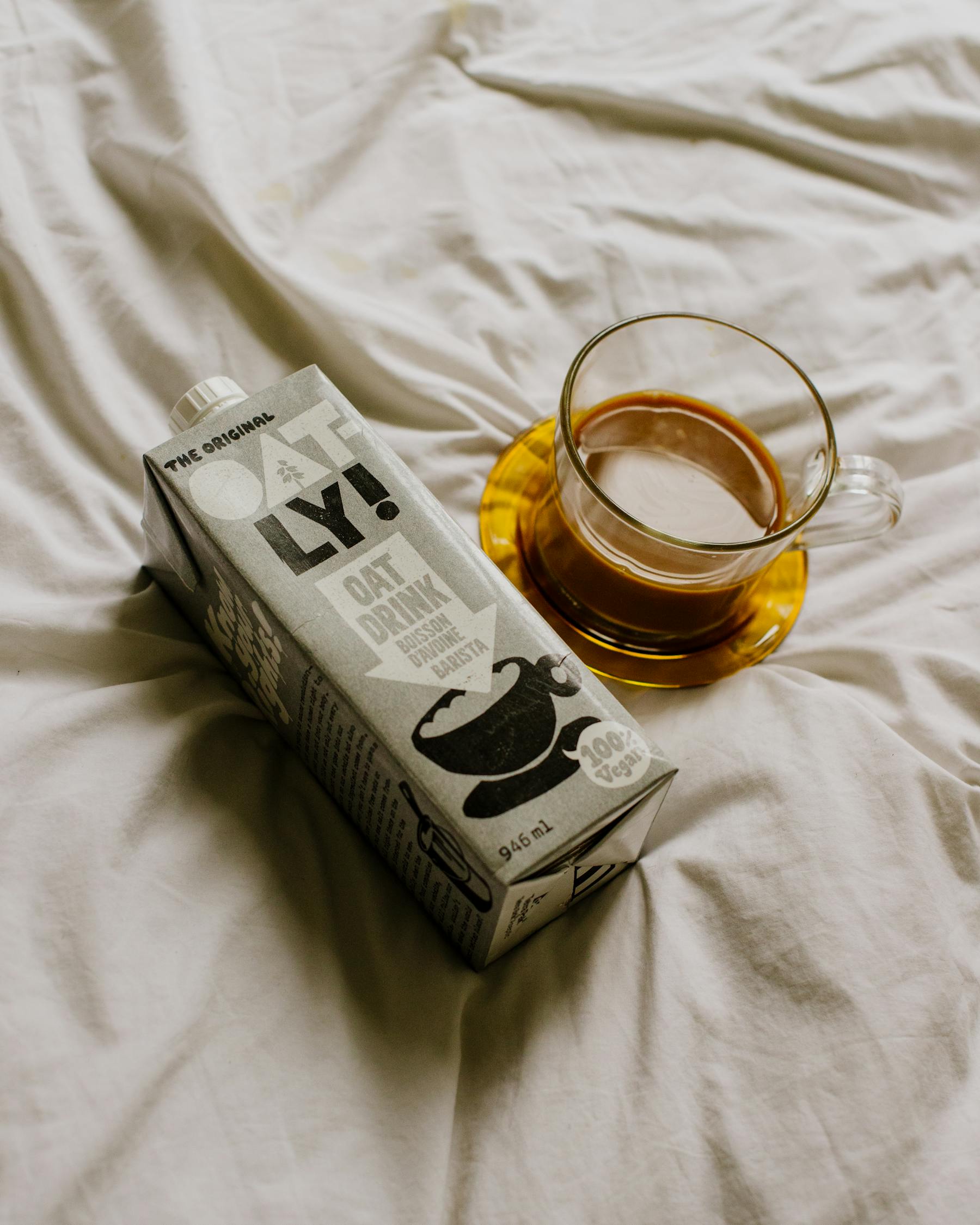
Why We Switched to Oat Milk
We’re passionate about offering products that are better for you and the planet. From our coffees to our packaging, we’ve always been committed to responsible sourcing. That’s why we find it important to consider the social and environmental impacts of milk production too.
We know that all milk alternatives are better for the planet than dairy. Producing a single glass of milk results in almost three times more greenhouse gas emissions and it consumes nine times more land than any other plant-based milk. This is largely because land is required to pasture the cows and grow their feed.
There is a long list of dairy milk alternatives available on the market today—like almond, coconut, hazelnut, soy, rice, and oat to name a few. But, we also know that plant milks can, nevertheless, have a dark side. This is the case when any crop is mass-produced. It’s important to consider how the farming of the crop affects people and native habitats in developing countries, along with their carbon footprint and water use. And while each product has its trade-offs, some plant milks are more sustainable than others.
While the production of almond milk requires far less land than dairy milk, these specialty crops, which are concentrated in California’s Central Valley, have their drawbacks. Almonds require more water than any other dairy alternative, consuming 130 pints of water to produce a single glass of almond milk. We also know that increased demand for larger crops of almond trees has placed unsustainable pressures on US commercial beekeepers. Every spring, almost 70% of commercial bees are drafted to pollinate these almonds. In 2019, one third of these bees died by the end of the season due to these increased pressures, among other unsuitable environmental conditions.
The other popular alternative is soy milk. The primary drawback to soy milk is that soybeans are grown in massive quantities to feed livestock for meat and dairy production. These crops result in widespread deforestation, especially the rainforest in the Amazon. Besides the impact of deforestation, it is important to consider the hazardous environmental effects of acid-neutralizing lime, as well as synthetic fertilizers, pesticides, and herbicides, all of which are heavily used to treat industrial soybean crops.
Then, there’s oat milk. While the farming of oat crops is harvested in mass quantities, this plant milk has a lower environmental impact, compared to soy and almond. Plus, oats are cultivated in cooler climates, like Canada and the US, and therefore not responsible for deforestation in developing countries. At Dispatch, we specifically partner with Oatly as our plant milk supplier. Their oat milk is made with high-quality, gluten-free oats that are certified glyphosate-free and sourced from farms across the US and Canada that are committed to the highest values of sustainability and renewable farming. Their processes generate 80% less greenhouse gas emissions than the production of cow’s milk. On top of that, they use 79% less land and 60% less energy than dairy milk production.
